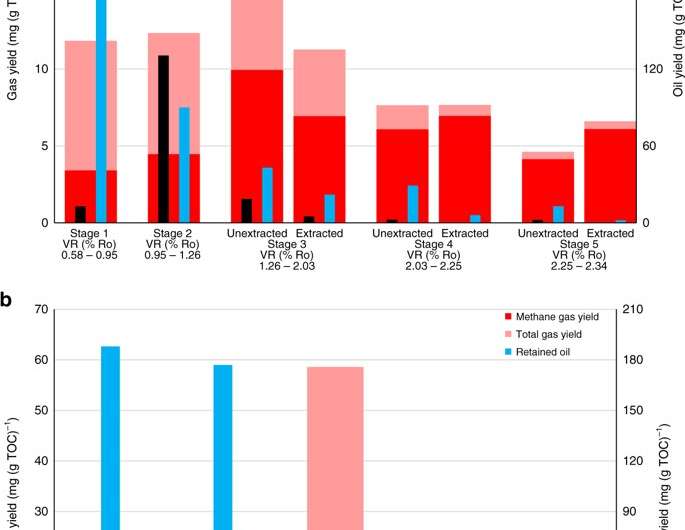August 21, 2019 report
New analysis technique suggests there is far less gas to be fracked in U.K. than thought

A team of researchers from the University of Nottingham, the British Geological Survey (BGS) and Advanced Geochemical Systems, Ltd, has found evidence that suggests the amount of shale gas available for fracking in the U.K. is much less than previously thought. In their paper published in the journal Nature Communications, the group describes their new technique and what it showed.
Just six years ago, the BGS announced that they had found that gas fields beneath the ground in parts of England and Scotland held approximately 1,300tn cubic feet of obtainable shale gas. Since that time, energy firms have instigated fracking projects that have extracted some of that gas. But others have complained that doing so has caused small earthquakes in the areas near the extraction sites. Also, some environmentalists in the country have suggested that relying on fracked gas reduces efforts made to convert the country to more sustainable resources. In this new effort, the researchers have used what they describe as a new technique to estimate the amount of gas under the ground in the U.K. and found it to be much less than what BGS found in 2013. They suggest there is enough there for just seven to 10 years of extraction—not the 50 claimed by researchers with the earlier study.
The researchers describe their new technique as based on a study of actual shale deposits using gas absorption data along with field data. They studied shale samples from two locations in the Bowland Shale, and used that to calculate the amount of gas at the entire site. They note that the 2013 study included no field studies—the researchers on the project used data from energy companies. The researchers with the new effort further note that great strides have been made in learning how to measure gas below the surface over the past several years.
The lead scientist at BGS, Mike Stephenson, who was not involved in the new effort, suggested to the press that much more study of U.K. gas fields is required to determine the true amount of shale gas.
More information: Patrick Whitelaw et al. Shale gas reserve evaluation by laboratory pyrolysis and gas holding capacity consistent with field data, Nature Communications (2019). DOI: 10.1038/s41467-019-11653-4. www.nature.com/articles/s41467-019-11653-4
Journal information: Nature Communications
© 2019 Science X Network




















